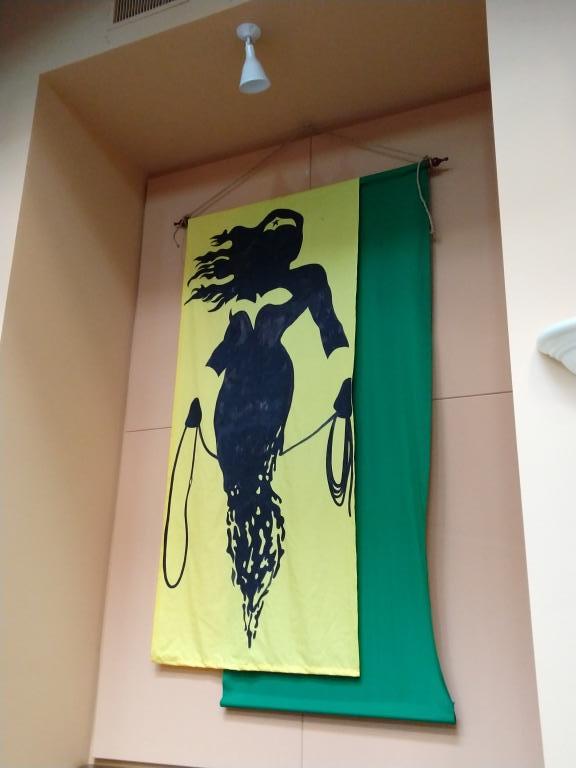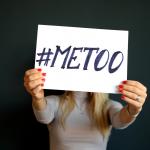This is the third sermon in a series, Resist: Justice Heroes from the Bible and the Big Screen. The preaching text for this week was John 4:1-42 (give or take).
It’s rough out there. Seems like every day brings some new attack on the rights of marginalized groups; some rolling back of the boundaries around what we thought was acceptable adult behavior. It’s hard to know where to focus our energy and attention sometimes.
Maybe the biggest threat of all is the specter of “fake news.” The power of actual propaganda floating out there in the world, AND the label of falsehood so easily assigned to legitimate sources. The aura of mistrust has created conflict around not just ideological issues, but who to believe; who’s a reliable source and who is telling outright lies. Even the most fundamental reality is in question … which is a deeply disturbing factor in an already unsettling time.
If the biggest threat to civilization is lies, then maybe our most powerful defense is truth.
As hard as it can be to discern the truth, it can be even harder to speak truth. Whether it’s telling our own painful stories, or speaking truth to power on a larger scale, there can be consequences to voicing our beliefs or experiences. We don’t know how people will react when the truth is hard to hear. Nowhere is this more evident than in the #MeToo movement, and more recently, the allegations against Supreme Court Nominee Kavanaugh and the public reaction to one women’s truth-telling. She has had to leave her home after a cascade of death threats.
The ethos of #MeToo has been that more women have come forward with stories of sexual assault, harassment and abuse, making it easier for other women to speak up. But that doesn’t mean these stories are easy to hear, especially when they are levied against powerful men. Culturally speaking, we are still often reluctant to believe a woman’s story as “truth” without first putting her through a battery of interrogation.
What was she wearing?
What’s her sexual history?
What’s the state of her mental health?
Is she on drugs? Does she work for a living? Is she on welfare? Or birth control?
Has she ever committed a crime?
And on and on it goes.
Truth is hard to come by; sometimes even harder to tell.
In this passage from John, the word “truth,” or some variation of it, appears five times. This kind of redundancy always indicates an important theme, especially in John’s gospel. Every word he uses is intentional. He has a metaphor for everything—and he’s a walking thesaurus. If he’d wanted to use other words, he’d have found them. But no. We hear it again and again: True. Truth. Truly. This is important. It’s also the longest piece of dialogue in all of scripture. Further indicating its significance.
Jesus meets a Samaritan woman at the well. He asks her about her life. Her first response is not entirely truthful. She tells him that she has no husband; this is what you might call a half-truth, or an omission of facts. You’re right, says Jesus, you’ve had not A husband, but five. (You know I love you Jesus, but this sounds a little passive aggressive to me, and I don’t think we appreciate your tone!) But yeah … he’s right. She’s been married a few times.
That’s probably a long sad story. For any woman, anywhere, but especially a woman in this cultural context. And here’s the power of truth, the moment that shifts the narrative and maybe changes the world: Jesus’ knowledge of her story—and more importantly, his willingness to hear her truth and speak it out loud—is all she needs to know that he’s the real deal. He must be a prophet. Maybe even the Messiah. That he hears and sees her, and engages her with not judgement but understanding, changes her life. It makes a preacher out of her.
It’s subversive enough that Jesus is even HAVING this long exchange with this woman. First of all—she’s a woman. Out in the daylight. Without a chaperone. For that reason, and because of her history with men, some scholars have assumed she must have been a shady figure, coming to the well in the heat of the day to avoid the gaze of judgy neighbors. That’s what biblical scholars have done to so many women in scripture; they read it through the lens of their own culture and say, “Oh, married multiple times, out by herself talking to strange men? She must have been a prostitute!”
She must have been someplace she wasn’t supposed to be.
What was she wearing?
But she’s not a prostitute. She’s just a woman in a vulnerable situation. Still, it’s highly unusual for a single man to speak to a woman he’s not related to like this. Compounded by the fact that Jews and Samaritans DO NOT MIX. It’s downright scandalous.
But they go on to talk about things of great significance: they talk about religious community, worship and identity. He identifies himself to her, and from this conversation at the well, she learns important truths about God; about herself; and about her own power to speak truth to others.
This woman who comes from the margins goes away from a brief encounter with Jesus feeling empowered. She goes on to be one of the first evangelists, telling everyone she knows about this man she met who saw her for who she was; who knew her, and named her as God’s own, and changed her whole life.
An empowered woman, as it turns out, is a Wonder Woman.
And with that graceful segue, let’s talk about Wonder Woman.

She’s been around for awhile. But she always seems to show up when women need a hero. Like in the 40s, when she first appeared in comic books when the men were at war and the women were keeping the economy and the American family afloat with just sheer will, hard work and nylon stockings. Or in the 70s, when women were trying to make a way for themselves in a vocational world that had been off-limits to their mothers.
Or in 2017, when it seemed like decades of progress towards equality had been erased in a single election cycle; Wonder Woman blazed onto the screen again and brought to life a vision of women’s empowerment that the world–men and women alike—desperately needed to be reminded of.
In the recent blockbuster incarnation, Wonder Woman—or Dianah, as she’s called throughout— is part-god, part-mortal. She can fend off bullets with her wrists, leap tall buildings, and take down a gang of Nazis with her bare hands. Well, her hands and her amazing boots. Every girl needs a pair of boots like that in her wardrobe.
Raised on an island of Amazon women—and only women, with no men in sight—she was brought to life and raised for battle, for a single purpose: to defeat Aries, the god of war. Zeus knew there would be a day when his son Aries would come back and destroy the earth and humankind, and so he created this warrior daughter who’d be the only one with the power to stop him.
On this island of women—who are trained for battle but live peaceably among themselves until WWI makes its way to their shores—Dianah has been sheltered from much of the world’s violence and hatred. As the story takes her to the front lines of the battle and exposes her to some of the darkest evil that humans are capable of, we watch her struggle with her black and white, binary understandings of good and evil.
She fights these raging battles with mostly just the things she’s wearing: her wrist bands, her head aunt’s headpiece and her killer boots. But perhaps her greatest accessory is the lasso of truth.
Some things haven’t changed from the original comic book series. It’s a golden, glowing lasso that holds a person captive and compels them to tell the truth. Holy smokes, I can think of a few people we’d like to rope with that thing. Game changer.
Since the creator of Wonder Woman also invented the lie detector machine, it’s clear that the ideal of “truth” is central to her character.
When misinformation is your opponent’s greatest weapon, the truth is your most powerful defense. And in this age of #fakenews, and “what if she’s lying,” and “the truth is not the truth,” then maybe truth-telling is the most powerful act of resistance imaginable.
There are many kinds of truth-telling, of course. There are many ways to put that truthful resistance into practice. For instance: diversifying our news sources so we don’t rely too heavily on the outlets that confirm our biases; keeping people in our circles who hold different beliefs and opinions so we aren’t part of the echo chamber problems.
There’s also the important work of speaking truth to power; engage in your community and your governing bodies, call your representatives, or show up in person to community forums. Be part of the process, and know the leaders who are making decisions that affect people’s lives.
Then there’s the kind of truth-telling that amounts to authenticity in our relationships; being who we really are and trusting our people to love us anyway. That can be a scary thing sometimes. Also scary–having truth reflected back to us, when it means seeing our not-so-perfect parts through the eyes of other people.
What we’re talking about here is not just about NOT telling lies; it’s about full-truth living—and full-truth living means that we believe people’s stories when they are vulnerable enough to share them with us; it means we nurture enough empathy and compassion in ourselves to believe stories of heartbreak, struggle, or assault … even if someone else’s experience challenges our assumptions about ourselves or the world we live in.
If someone else’s truth pushes up against your own experience of the world, that’s when you know it’s time to check your privilege. If you find someone else’s suffering hard to believe, ask yourself why. Is it because they are poor and you’re not? Because they are black and you’re not? Because they’re a woman and you’re not? Because they are queer/gender-non-conforming and you’re not? Sometimes our privilege makes it hard to hear and believe the suffering of another.
So we blame poor people for their own struggle; shame women for their own assault; profile and villainize people of color; and make LGBT people fight for the most basic right to exist among us.
And this is how fake news is born, folks. The established world order wants to diminish and dismiss the harrowing accounts of marginalized populations, so they work hard to control the narrative. If those in power can effectively silence the voices of those who are harmed by the status quo, then they can keep the power structure firmly in place.
On the flip side, it’s a powerful thing to recognize the value of one who’s been put aside; to hear the voice of one who’s been silenced. Creating space to bear witness to another’s truth can change someone’s life, and it can change the world we live in.
That’s how we make the truth of God’s love known, in the flesh.
And that’s why the greatest resistance to tyranny is the truth … telling the truth, and hearing the truth when it’s spoken.
Both of those things are spiritual disciplines, which means we have to cultivate them with intention. Speak our truth. And humble ourselves to hear someone else’s, even if it makes us rethink the world we live in and the systems we’re a part of.
In a reflective moment at the end of Wonder Woman, Dianah writes: “I used to want to save the world; to end war and bring peace to mankind. Then I glimpsed the darkness inside their light. There will always be both inside them … now I know that only love can truly save the world.”
She realizes that destroying Aries might end the battle, and maybe even the war; but it will not end all evil for all time. Humanity has its darkness.
Seeking and speaking truth daily is how we identify that darkness inside the light; if we can reveal it and speak truth to it, we can transform it. This is where we find the intersection of humanity and divinity, and the shared human experience of human suffering.
Remember that truth-telling sometimes means you make people uncomfortable. It’s hard work, but we’ve got good teachers. Whether it’s a female superhero in a man’s world; a woman at a well with no chaperone; or a man on the road who accepted a drink from a stranger he never should have spoken to.
All they did was talk, you know … But when two people who would normally never have reason to trust each other even speak to each other wind up speaking their truth, and seeing the full humanity in the other? It’s a profound moment of transformation. One of them went on to save the world; and the other one went off to tell about it.
But first, she sat at the edge of the well, and she took a rope. Maybe she made a loop and tied it tight; she lowered it down and pulled up the living truth; a drink of water that will never run dry, for those who thirst for what’s true.












